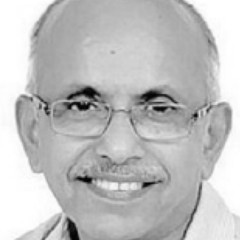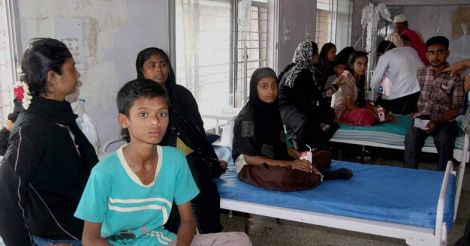Many times we do not accept the fact that children too have personality. This is important in the case of children afflicted with serious diseases. When the thought “without her I cannot live” is stronger than the thought “how much she must be suffering”, treatments are imposed on her even when they are not effective, without seeing the child’s misery. Changing specialists and giving more treatment through someone when a doctor says chemotherapy is no more useful is because of love. But, many times, it is cruel.
If palliative care is given along with treatment for the disease, there could be some relief. But in many parts of the world palliative care is not available. And in places where it is available, the situation is that it is given to adults but not children. Since treatment of pain in children is something that has to be learned separately, many times even doctors are not willing to give it to children. Even if the doctor and the child’s family agree to give treatment for pain, many times necessary medicines are not available. Even if they are available, it is difficult to get them in syrup form, which is suitable for small children.
Vatican is taking initiative to reduce the pain and misery of children. On November 10, 2015, 35 selected representatives, including theologians, human rights activists, doctors, sick children and their families, met in Vatican to discuss and take decision on the subject.
Many international treaties have pointed out that children have the right to palliative care and freedom from pain. This is clearly mentioned in Article 12 of the UN covenant on economic, social and cultural rights. Article 24 of the UN covenant on the rights of the child states that it is the duty of all members of the United Nations to give treatment for pain and palliative care to children when necessary.
Considering all these, the charter prepared by those who attended the workshop appeal to all national governments to provide palliative care, including house visit. It recommends that availability of medicines like morphine, which are needed to reduce pain in children, should be ensured and palliative care must be given along with treatment for the disease.
Three people from India attended this workshop: Dr Mary Ann Muckaden, the chairperson of International Children’s Palliative Care Network from Mumbai, Dr Kshama Metre of Chinmaya Foundation and myself as an advocate of human rights of children. We had started discussions much earlier through email. The charter prepared by those who met face to face, selecting words carefully, was signed by everyone and submitted to Pope Francis the next day.
He has spoken earlier also about the need for palliative care. In his address through Vatican Radio on March 5, 2015, he had highlighted the importance of palliative care. “Do not think that palliative care has no value because it does not save lives. Palliative care does something equally important: it sees a person as an individual and recognises the value of life.”
Let us hope that nations will pay heed to the pope’s message. If at least hospital chains run by religious organisations imbibe the pope’s message, lakhs of people in India will get relief from pain and misery.
(The writer is the chairman of Pallium India and director of WHO’s collaborating centre)




































































































































































































































































































































































































































































































































































































































 (Representative image)
(Representative image)
Disclaimer
The comments posted here/below/in the given space are not on behalf of Manorama. The person posting the comment will be in sole ownership of its responsibility. According to the central government's IT rules, obscene or offensive statement made against a person, religion, community or nation is a punishable offense, and legal action would be taken against people who indulge in such activities.